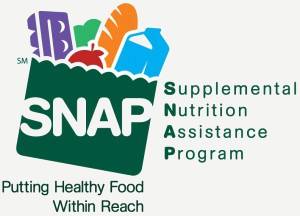 By Jean Blish Siers *
By Jean Blish Siers *
I guess I should be happy. It seems like job security of a sort for any of us in the business of feeding our hungry, most vulnerable neighbors. And we all like to feel secure, right? Well, I’ll let you judge for yourself.
Here’s an excerpt from a Charlotte Observer front page story this morning: “Up to 10,000 people in Mecklenburg County could lose their food stamp benefits by the spring if they’re unable to prove they work, volunteer, or take classes for at least 20 hours a week … The federal requirement for work and volunteer hours applies to adults under 50 without children or a disability. In North Carolina, an exemption was created in 2008 during the recession. The exemption ended Jan. 1 for 23 counties across the state, including several in the Charlotte region … Statewide, 115,000 people will have to document work, volunteer, or education activities by April 1 if they want to keep their benefits.”
So why am I not happy? After all, I know more food banks and church pantries than ever will be calling me, looking for fresh produce to supplement the non-perishables on their shelves. I like to be needed and wanted.
But here’s the thing: I know there won’t be enough. I know that hunger agencies will call me and I won’t have anything for them. I know, because it happens time and again, that if I send 1,000 pounds of watermelons to a ministry, they could easily have distributed a ton. In the Charlotte area in 2015, we gleaned and distributed about 350,000 pounds of fresh produce. There were very few times I had to make more than a phone call or two to find a ministry desperate for something fresh for their clients.
While I like to feel secure and needed and wanted, I know that all my neighbors here in North Carolina like that, too. The economy’s rising tide has not lifted all boats equally. For those without adequate resources, finding transportation to take classes (let alone paying for those classes) or to do volunteer work is nearly impossible, particularly in the more rural counties around Charlotte. And as the requirements become more confusing and more restrictive, people who do qualify can still feel unsure of themselves and unwilling to apply.
I’m not more secure if my neighbors aren’t more secure. None of us is. We are only as strong as our weakest citizens. The North Carolina legislature has passed a lot of legislation in the last few years that hits the state’s most vulnerable: the repeal of the gleaning tax credit, the decision not to expand Medicaid, and the reduction or loss of unemployment benefits for long-term unemployed. This is just the latest in a series of attacks on the poor. Feel better yet?
* Jean Blish Siers is SoSA’s Charlotte Area Gleaning Coordinator, and a regular contributor to this News & Events blog.
JAN
2016

